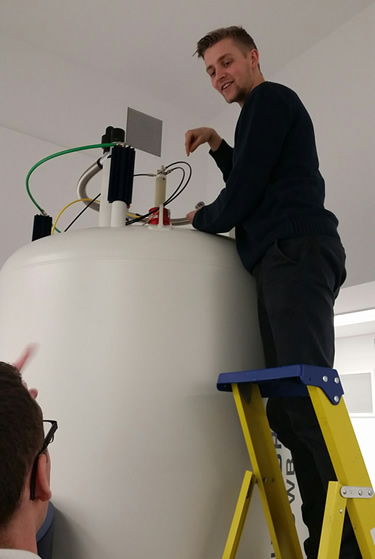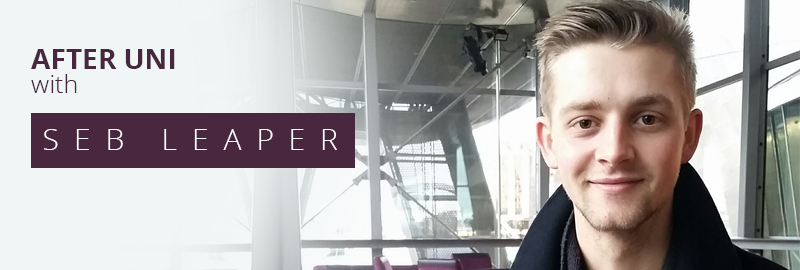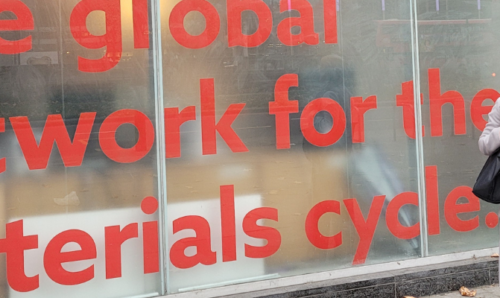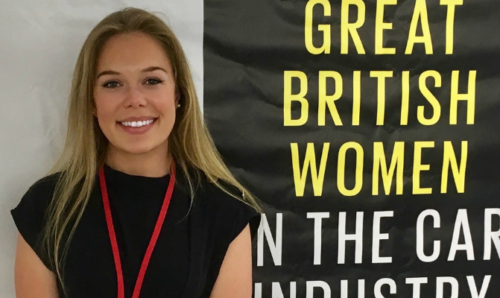After Uni with Seb Leaper
Alumni 9th February 2016
The After Uni series returns today, although this time it features somebody who is technically still with us at The University of Manchester. While Seb Leaper might have graduated from the School of Materials, he enjoyed his time he so much that he decided to stay. Find out more below:
Hi Seb, thanks for talking to us. Could you start by telling us a bit about your journey through the School of Materials? What did you study here?

I came to Manchester to study Materials Science and Engineering all those years ago and absolutely loved it. I had great course mates and brilliant lecturers that kept me motivated whenever the going got tough. I was lucky enough to spend my third year on an industrial placement which allowed me to implement some of the skills I had developed over the previous two years. This helped me develop a broader perspective on the working world and taught me a lot about myself. Coming back to Manchester for my fourth and final year was great fun, very rewarding, and hard work!
And what was the best thing about your course?
I think the best aspect of my course was how broad the syllabus was. Materials Science itself is such a wide field that not only requires knowledge of fundamental scientific principles, but also how those principles feed into the technologies that we use every day. Regardless of what area of science or technology you’re interested in, materials will most likely feature!
How did the School of Materials help you get through studies?
The School of Materials was always very supportive of me and my course mates. The lecturers were very approachable and always willing to help.
And what about the facilities? What did you use during your course?
The School of Materials at Manchester is host to some of the best scientific equipment in the world and is still improving its portfolio. Throughout my course, I got to synthesise various polymers in the wet chemistry labs as well as grind and polish metal alloy samples in order to reveal their microstructure. For my final year project I had access to a state-of-the-art Raman spectroscope and a high-resolution scanning electron microscope (as well as an infinite supply of rubber gloves and a barely-stained lab coat).
If you could go back to the beginning of that degree now, is there anything you’d do differently?
There were a couple of free pizza events that I didn’t go to. If I could go back, I would go to them. Twice.
Do have any tips for any new students on the course, or new students in the School as a whole?
Since I graduated last year, the Materials Science and Engineering course has been rewritten so I can’t say too much about the content. However, I was a student rep last year and was involved in some discussions about the new course and the changes I have heard about are definitely for the better. One piece of advice I would give to new students is to try your best to make friends on your course as well as in your halls. I’ve been lucky enough to become great friends with my course mates who have really helped motivate me through the challenging times.
And what are you up to now? Tell us about what you’ve been doing since graduating?
I am now studying for a PhD with the NOWNANO Graphene CDT. This is a four-year program which brings together students from different disciplines from around the world to study nanoscience and, in particular, graphene. It’s hard to live in Manchester and not have heard about graphene! I had an interest in the 2D material ever since I heard about the Nobel Prize of 2010. Having learned more about it during my undergrad, I became very interested in studying it further. Graphene is a material that is influencing many different areas of science and being able to study it in the city that first isolated it is very exciting.
What did you learn during your undergrad that helped you get to where you are today?
My undergrad prepared me well for a variety of situations. Aside from providing me with good technical knowledge of materials and devices, it allowed me to work for a year on placement. The job market is becoming increasingly competitive for newly graduated students and industrial experience is a huge advantage. Not only does it help you develop skills like time management, communication and technical ability, it also teaches you about yourself and what kind of work suits you. The industrial experience I received allowed me to make a more informed decision about what to do after I graduated and what I may do later on in life.
And finally, can you tell us a bit more about yourself? What do you like to get up to in your spare time?
I have always been passionate about music, playing guitar and piano, and like to take advantage of the Manchester music scene whilst writing and recording at home. I also play football every week and occasionally go SCUBA diving as part of the Manchester University Sub Aqua Club. I care a lot about the environment and like to be part of an institution which is helping to promote the alternative energy technologies to fossil fuels. Being chair of the Fossil Free society, I try to voice the concerns of fellow students and academics and hope the university can be as progressive with respect to climate change as it is with so many other areas, not least, nanotechnology.
Many thanks, Seb. Great to hear from you – sounds like you’re involved in some fantastic work. I’ll be keeping an eye out for your name on the list of graphene innovators. Best of luck with it all.
To the rest of you – thanks for reading. Come back soon!
GrapheneMaterials ScienceSchool of MaterialsThe University of Manchester





Leave a Reply
You must be logged in to post a comment.